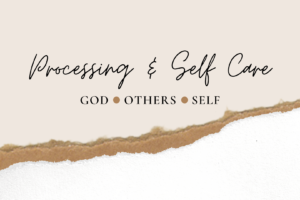In our last blog post, we discussed how counseling is for Christians, how scripture and the Bible and even the church aren’t always enough when someone is healing. God encourages us to seek counsel when we need it. One question or assumption people often have about counseling when hesitant about it is “is it too secular?” Is the influence of psychology, other sciences, and secular education harmful? Is it in line with biblical truth? And if not, we should stay away from it, right?
Listen, these are important questions. Questions we need to wrestle with.
But they’re not exactly the questions we’re going to answer today.
If you’re concerned about having too much of a secular influence, you have the option of seeking out a faith-based therapist, often referred to as a “Christian counselor.”
When someone is a Licensed Professional (because there are some who practice without a license), whether a Christian counselor or not, they’ve been educated and trained to utilize evidence-based techniques and interventions to help a person work through their issues.
At Full Life, our counselors are licensed or provisionally licensed and are also educated and trained in understanding how spirituality, theology, and faith integrate with concepts, theories, and interventions from psychology and other areas of study. In other words, we can use evidence-based interventions AND conversations about God, faith, and scripture to help a client process their past hurt and trauma, manage current symptoms and struggles, and live full, healthy lives.
This is the main difference between Christian counseling and counseling that isn’t faith-based. Though all counselors should make room for spiritual conversations because spirituality is an important part of everyone’s life and story, not all counselors will know how to integrate spirituality and theology with psychology. This is usually because they simply weren’t trained in this. Even so, a good counselor, whether they call themselves a Christian counselor or not, will explore spirituality if a client wants to.
However, Licensed Christian counselors are still bound by the same ethical codes and will not push their values on a client. There are many clients that hold a different worldview who will see a Christian counselor, and the counselor will explore issues related to spirituality when the client wants to, while respecting their autonomy to believe and practice what they want.
But when a client would like faith-based conversations and interventions in Christian counseling, an adept counselor will be able to bring those in when they believe it would help the client. Among other interventions, a Christian counselor may use scripture, concepts from faith-based nonfiction books, and even prayer if it serves the client. In Christian counseling, it is also safe to explore and process things like church hurt or spiritual abuse.
For someone wanting Christian counseling, it is important to remember that a counselor may have differing beliefs and experiences. The counselor will not necessarily always share his or her personal beliefs about a topic but will help a client explore their own. Though all counseling, whether Christian or not, can be helpful for a person in their healing, a Christian counselor will usually be more comfortable implementing faith-based interventions.
A final thing to note in this conversation: we recognize that some want Christian counseling, but others do not trust Christians and do not want Christian counseling. At Full Life, though we are Christian counselors, we welcome clients from any background, no matter their worldview, and we, in a safe, nonjudgmental way, will respect our client’s wishes in bringing faith-based conversations into the room or not.
If you are in need of counseling, we have several therapists with immediate openings. Please call (504) 635- 7162 for more information.






Recent Comments